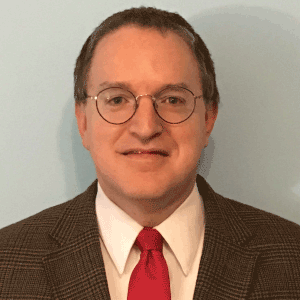Titles + affiliations
Assistant Professor, Department of Medicine, Oncology Division
Washington University in St.Louis
Research
Resensitizing Relapsed AML Cells to the Graft-versus-Leukemia Effect after Allogeneic Hematologic Stem Cell Transplantation (HCT)
Summary
One of the most effective treatments for Acute myeloid leukemia is allogeneic hematopoietic stem cell transplantation (formerly called “bone marrow transplant.”) About 3000 patients receive these treatments each year. Unfortunately, transplants only cure patients about 40% of the time, and the main reason why transplantation fails is that leukemia relapses after the transplant. A few years ago our group performed a study of patients who relapsed after stem cell transplant. We wanted to discover what mutations or other genetic changes might happen that allows the leukemia cells to relapse. We observed a number of changes in the expression of genes that are involved in the immune system. This was intriguing, because one of the ways that transplants are believed to work is through immune pressure from the donor immune system that suppresses leukemia and the recipient. One of the important mechanisms by which donor immune cells are able to kill AML cells is by recognizing molecule called MHC class II (MHC-II) that is found on the AML cells. We discover that in 1/3 to 1/2 of cases of AML relapse after transplant, MHC-II expression has been completely lost on the relapsing AML cells. We hypothesize that without MHC-II, AML cells are no longer recognized by donor immune cells and this leads to transplant. In this grant proposal, we will uncover mechanisms by which AML cells lose MHC-II expression. In addition, we will test a new drug, a long-acting form of interferon gamma
Impact
Despite recent advances in AML therapeutics, allogeneic stem cell transplantation (HCT) remains the only curative treatment for a significant number of patients. This is thought to be due to the allo-immune clearance of residual, chemotherapy-resistant AML cells by donor T cells after HCT. There is great interest, therefore, in developing new techniques to sensitize AML cells to clearance by donor T cells in order to prevent or treat relapse.
Interferon gamma (IFNG) is a cytokine that has many immune-activating, as well as immune-attenuating, effects. One effect of IFNG signaling is to robustly upregulate MHC-II expression. We hypothesized that this could be of benefit, specifically in the subset of patients who relapse with loss of MHC-II expression. Unfortunately, the short in vivo half-life of IFNG may limit its use as a therapeutic agent to restore MHC-II expression and resensitize AML cells to T cell allo-reactivity.
In this work, we tested a novel, pegylated form of IFNG (pegIFNG) that has a half-life significantly longer than standard recombinant IFNG. We showed that pegIFNG treatment leads to significantly higher MHC-II expression, compared to recombinant IFNG, and this is associated with improved AML cell clearance in a xenograft model of HCT.
We plan to use this model to further define pathways by which pegIFNG treatment may improve AML cell clearance, with the goal of developing this drug as a possible therapy for AML relapse after HCT.
Abstracts/Presentations
Vaishali Basu, Gregory Christopher Mannino, George N. Cox, Matthew Christopher,
554 - Reversal of MHC-II Downregulation with Interferon Gamma Enhances the Graft-Versus-Leukemia Effect, Transplantation and Cellular Therapy, Volume 28, Issue 3, Supplement, 2022, Pages S430-S431, ISSN 2666-6367

Leukemia Research Foundation grant
$100K awarded in 2021
Disease focus
Acute myeloid leukemia (AML)
Research focus
Relapse prevention (maintenance therapy)
